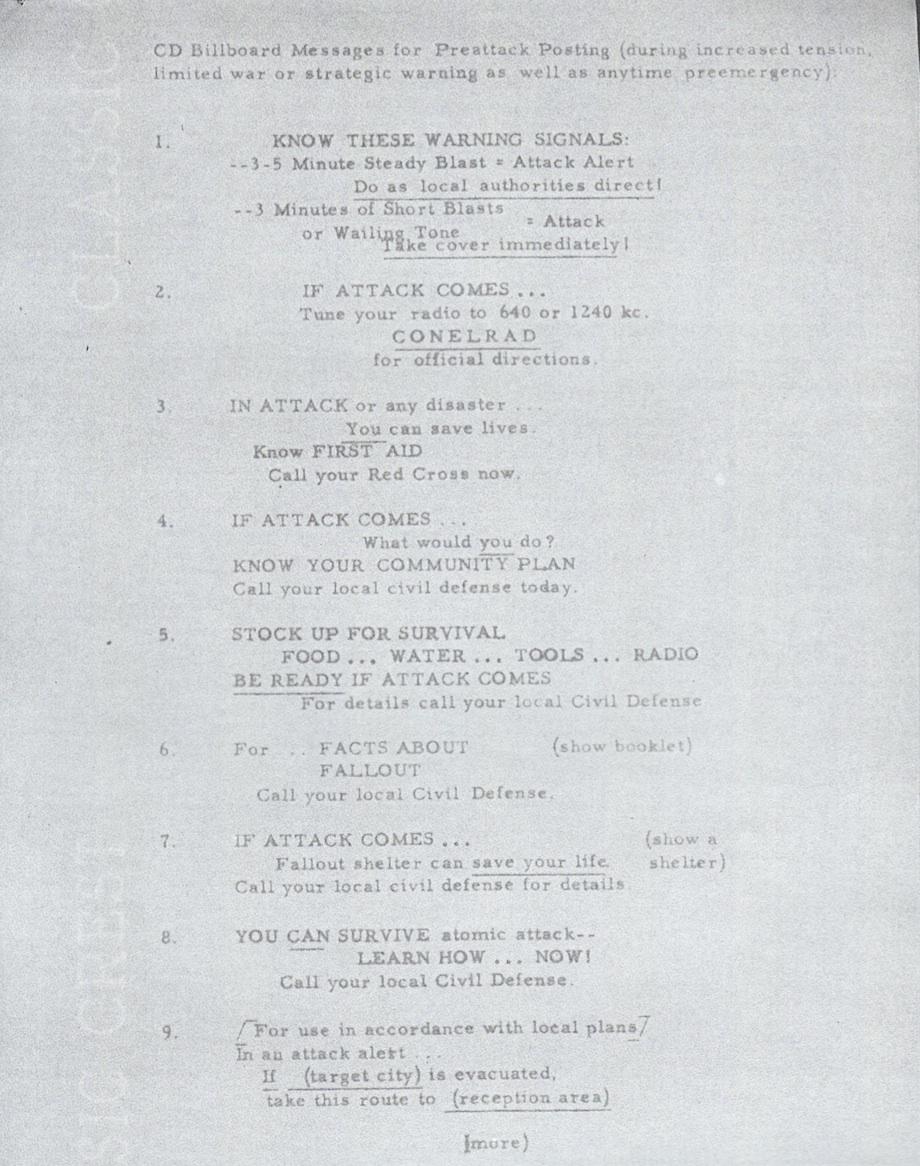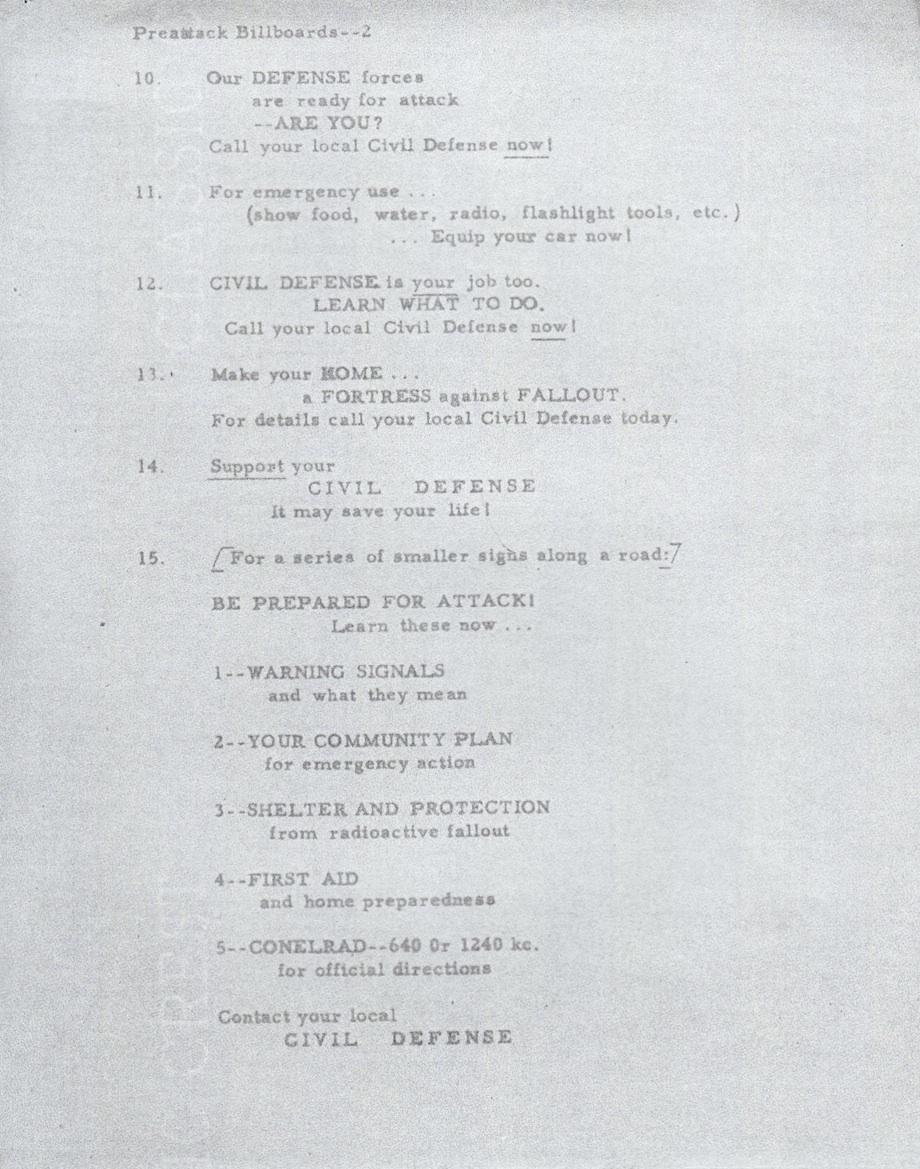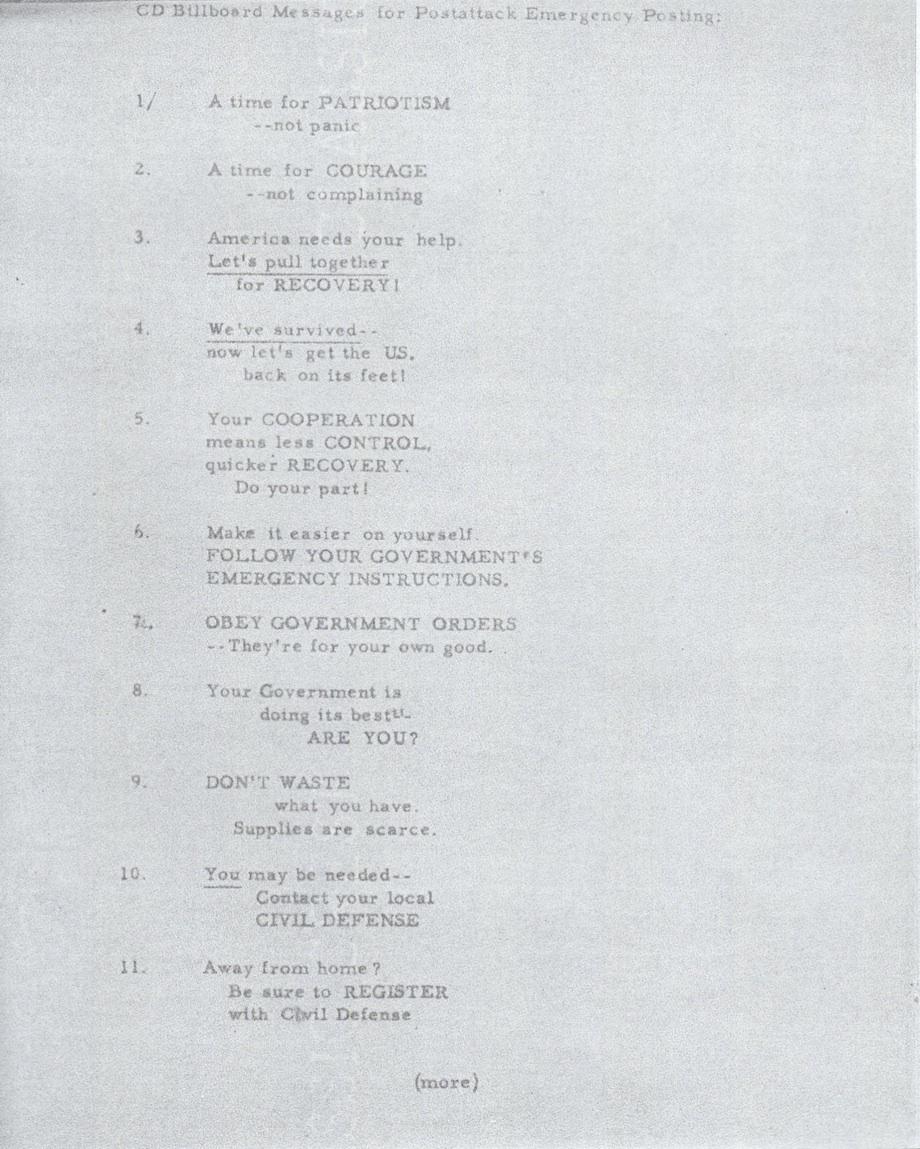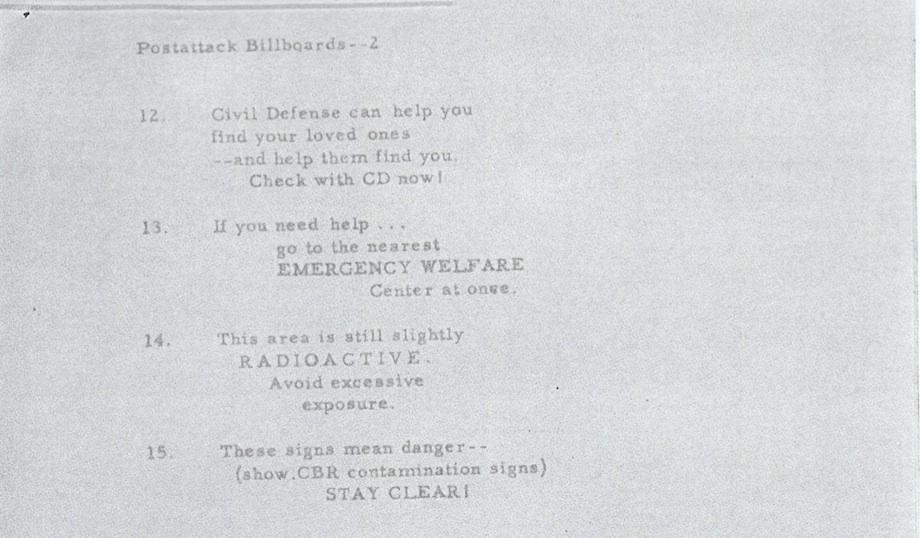The Vault is Slate’s history blog. Like us on Facebook, follow us on Twitter @slatevault, and find us on Tumblr. Find out more about what this space is all about here.
Deputy Administrator Lewis E. Berry, of the Office of Civil and Defense Mobilization, drafted this 1960 list of billboard slogans for possible use before and after an attack on the United States. (The list was unearthed in the National Archives by the proprietors of the CONELRAD Cold War history blog.)
Berry argued that it’d be logistically unlikely that billboards could be put up during an attack, but thought that they would be useful during the time before and after the crisis. In the letter he attached to the list, Berry added a practical recommendation: “It would be wise also to have on hand supplies of letters and numerals so that a message required for a particular local situation could be put up quickly without first having to be printed.”
Some of the “after” slogans Berry proposes could populate the highways of a post-apocalyptic fantasy world:
“A Time for PATRIOTISM—not panic.”
“Your COOPERATION means less CONTROL, quicker RECOVERY. Do your part!”
“OBEY GOVERNMENT ORDERS—They’re for your own good.”
During the Cold War, civil defense and national security messages appeared across many media platforms. As Berry notes in his letter, radio, television, and print media had been “generous” in donating time for civil defense messaging; why, Berry asks, couldn’t billboard advertising firms do the same—“at least for otherwise unsold space.”
While the post-attack slogans would obviously be inappropriate for everyday life, some of the pre-attack slogans blandly urged alertness (“If Attack Comes…What would you do? KNOW YOUR COMMUNITY PLAN. Call your local civil defense today”) and might serve as permanent fixtures. CONELRAD’s researchers, however, found no evidence that Berry’s particular suggestions ever saw the light of day.

National Archives, via CONELRAD.

National Archives, via CONELRAD.

National Archives, via CONELRAD.

National Archives, via CONELRAD.